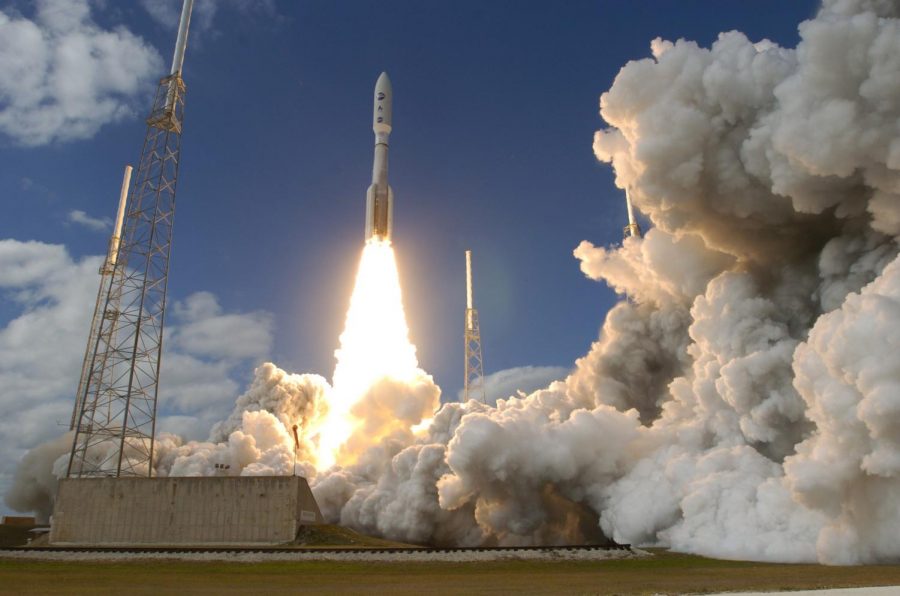Politics represents obstacle to scientific progress
Bureaucratic regulations impede crucial discoveries in the 21st century
March 11, 2021
I would like to start by reminding you readers of last week’s opinion issue, in which Cap McLiney considered the positive ramifications of federalist principles that the United States government has upheld since the era of our Founding Fathers. For the most part, I can sympathize with his sentiment. However, I would like to examine the key aspect of his argument which prioritizes individual agency within organized society.
In Cap’s article, the individual agency he addresses is represented by entities such as citizens and the state governments. Each has the liberty to choose what is best for them, personally under a central government. I would like to tackle a similar topic of devolution, but instead, I will replace the former subject with individual companies. Because Cap implies that a small government is the result of a healthy republic, I would like to make the point that economic liberalism produces a similar result.
Companies and their respective industries motivate the progress of civilization. It is the collaboration of thinkers and tinkerers that make up the neural networks of companies, which in turn produce great scientific innovations. In spite of this theoretical truth, we are in a new century — we’re witnessing the tortoise, and not the hare, when it comes to companies churning out resourceful products. The blame falls largely on government regulation and the intervention of politics with science.
For much of human history, the greatest scientific discoveries and research transpired in the 20th century, and the rate of those advancements was expeditious. With the advent of penicillin and the creation of pharmacotherapy, we have found effective and reliable treatments for deadly diseases. With the discovery of quantum mechanical phenomena via the double-slit experiment and the equations of relativity, we have confirmed the existence of atomic particles and created new instruments like satellites to aid our infinitesimal understanding of the universe.
However, it seems as if the early 21st century has had little to offer when it comes to new earth-shattering ideas and innovations. Besides the realization of the Internet, we have this muddled perception that there is a lack of new theories or ideas that could give us an upper hand when it comes to formidable adversaries like diseases in cancer, and Alzheimer’s; a need for clean renewable energy; waste management; and even space exploration. Many scientists and economists even claim that the rate of technological innovation is decelerating, using Moore’s law as a moot point. Even the co-founder of PayPal Peter Thiel made a snarky remark, saying, “We wanted flying cars, instead we got 140 characters.” Yet it is politics that has blindsided us.
An example of this political intervention is that — due to government meddling — many health-specific legislations require extensive background checks before they can enter the docket on one of Congress floors. This results in the delay of enactments of certain contingencies, like the approval of COVID-19 vaccination trials. Companies like Moderna and Pfizer that applied for Emergency Use Authorization had to wait weeks for the green-light from the U.S. Food and Drug Administration (FDA), while other countries progressed much more quickly. This arduous process of regulation becomes a deterrent in the grand scheme of things, especially in consideration of the global health crisis.
Not all government intervention is ineffective. Some subsidies represent examples of this. We like government subsidies that let science thrive and grow. With the gross funding of $22 billion from the Department of Health and Human Services, vaccination testing and distribution productivity have skyrocketed, decreasing the time necessary to develop a vaccine from 10-15 years, to a mere year and a half. This is a noteworthy feat, considering the government gave the reigns to public and private companies to fight for a common goal. NASA, after its termination of the Space Shuttle program back in 2001, teamed up with private companies like SpaceX to create their own spacecrafts and in exchange, SpaceX will send NASA astronauts to space.
However, we can also see the downside of regulation. NASA recently sent the Perseverance rover to Mars. The launch itself cost $2.7 billion. We have not sent a single soul to the moon since 1972 due to egregious costs. This indicates that the government and its agencies have sole control of funding, and that is unbeneficial to the development of new scientific innovations.















